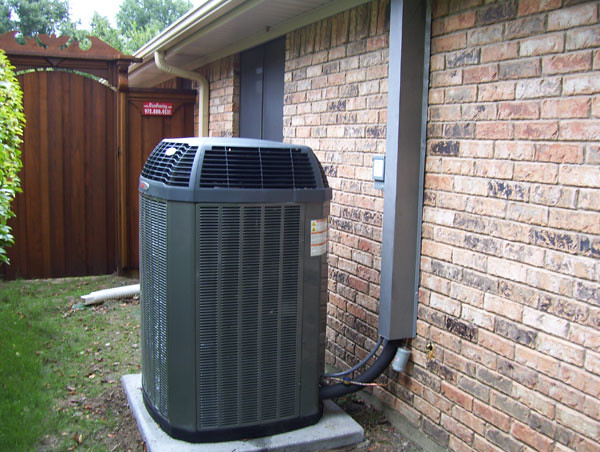
Living in Las Vegas means relying heavily on your air conditioning system to maintain comfort through the scorching summer temperatures. The extreme desert heat, which can soar above 100 degrees Fahrenheit, places a significant strain on home cooling systems, making their maintenance and timely replacement critical for homeowners. This comprehensive guide will discuss everything you need to know about air conditioner replacement in Las Vegas, from understanding when to replace your unit to selecting the right model and hiring credible professionals for the installation.
Understanding the Need for AC Replacement
1. Age of the Air Conditioner:Most air conditioning units have a lifespan of about 10 to 15 years. Past this age, they tend to become less efficient, more prone to breakdowns, and often incompatible with modern, energy-efficient technologies. Considering the frequency of use in a Las Vegas household, this timeline might be on the lower end.
2. Increasing Energy Bills:A noticeable uptick in your energy bills can indicate that your AC is losing efficiency. Older units tend to work harder to produce the same cooling effect, consuming more energy in the process.
3. Frequent Repairs:As air conditioners age, they might need more frequent repairs. If you find yourself calling your HVAC technician more often than usual, it might be more cost-effective in the long run to replace the unit altogether.
4. Inconsistent Temperatures and Poor Airflow:If some rooms in your home are cooler than others or if the airflow from your AC is weak, these can be signs that your air conditioner is failing.
Choosing the Right Air Conditioner
1. Size of the Unit:It’s crucial to choose an air conditioner that fits the size of your home. An undersized unit won’t cool your home adequately, while an oversized unit will cycle on and off too frequently, reducing its efficiency and lifespan. A professional HVAC technician can perform a load calculation to recommend the correct size.
2. Energy Efficiency:Air conditioners are rated by their Seasonal Energy Efficiency Ratio (SEER). The higher the SEER rating, the more efficient the unit. Modern units are required by law to have a SEER rating of at least 14 in Las Vegas. Opting for units with a higher SEER rating can lead to significant savings on your electricity bills.
3. Type of Air Conditioner:The two main types of air conditioners are split systems and packaged systems. Split systems are more common in residential settings and consist of an indoor and outdoor unit. Packaged systems, which house all components in a single unit typically installed outside the home, are often used in commercial settings but are also an option for homes without space for a split system.
The Replacement Process
1. Hiring a Professional:Due to the complexities involved in installing an air conditioner, it’s advisable to hire a professional HVAC contractor. Ensure your contractor has a good reputation, the necessary licenses, and insurance. They should also have experience with installations in desert climates.
2. Installation Day:On installation day, the
contractor will remove your old unit and install the new one. This process typically involves setting up the condenser unit outside, installing the evaporator coil, and ensuring all electrical connections and ductwork are properly configured.
3. Testing the System:Once installed, your HVAC technician should thoroughly test the system to ensure it functions correctly. This includes checking the thermostat, ensuring all connections are secure, and verifying that the unit is producing cool air efficiently.
Maintenance Tips
1. Regular Cleaning:Keeping your air conditioner clean is essential for its efficiency and longevity. Ensure the area around the outdoor unit is clear of debris and that the filters are replaced or cleaned regularly.
2. Annual Inspections:Have a professional HVAC contractor conduct annual inspections before the major cooling season begins. They will check for issues like refrigerant leaks, worn out electrical components, and duct leakage.
3. Programmable Thermostat:Using a programmable thermostat can help reduce the workload on your air conditioner by adjusting the temperature during different times of the day. This means less energy consumption and prolonged equipment life.
Economic and Environmental Impact
1. Cost Savings:Investing in a modern, energy-efficient air conditioner can save homeowners considerably in long-term energy costs. Additionally, utility companies in Las Vegas often offer rebates for the installation of energy-efficient appliances.
2. Environmental Considerations:By choosing an energy-efficient air conditioner with a high SEER rating, you’re not only saving money but also reducing your carbon footprint. Such units require less electricity and thus generate fewer greenhouse gas emissions.
Conclusion
Replacing an air conditioning unit in Las Vegas is a significant investment that affects your home’s comfort and your wallet. By understanding when to replace your AC, choosing the right kind of unit, and ensuring proper installation and maintenance, you can enjoy efficient cooling even in the hottest months. Always remember to consult with professional HVAC technicians and consider energy-efficient models for a sustainable, cost-effective choice. This proactive approach towards
air conditioner replacement Las Vegas conditioner replacement will not only ensure a cooler home but also contribute to a healthier environment.